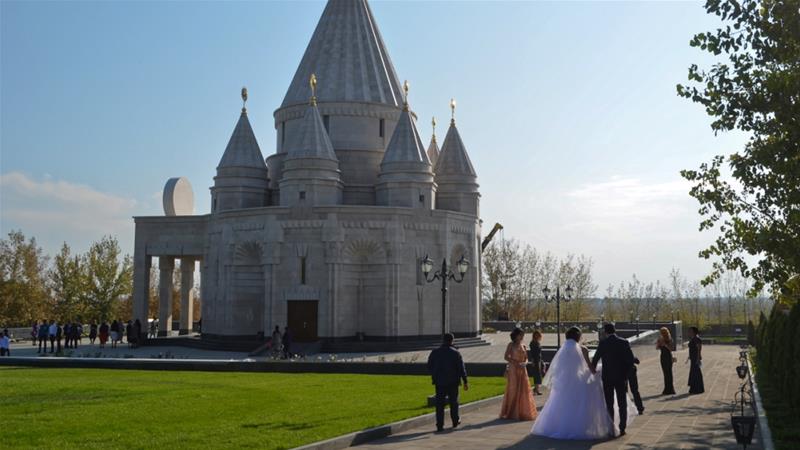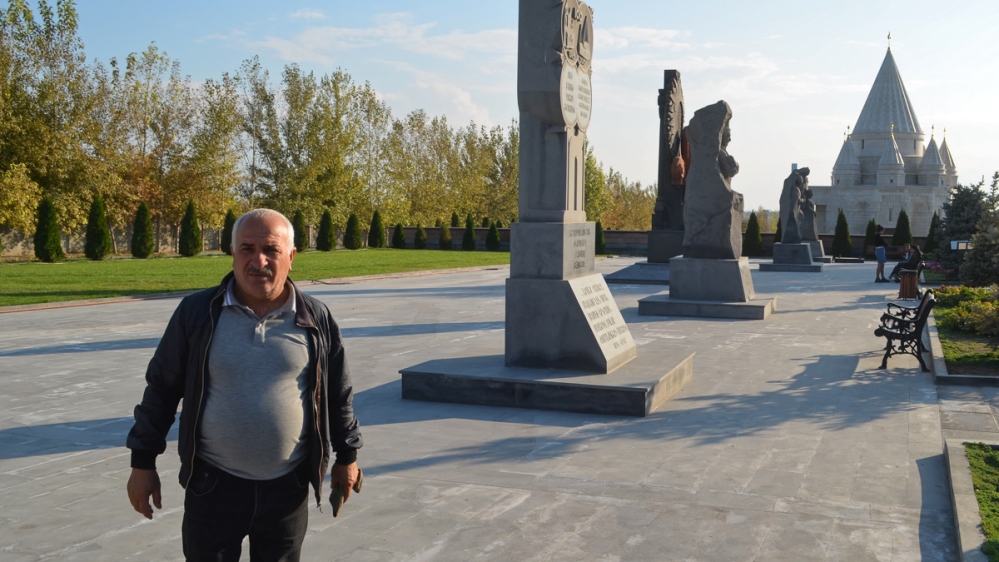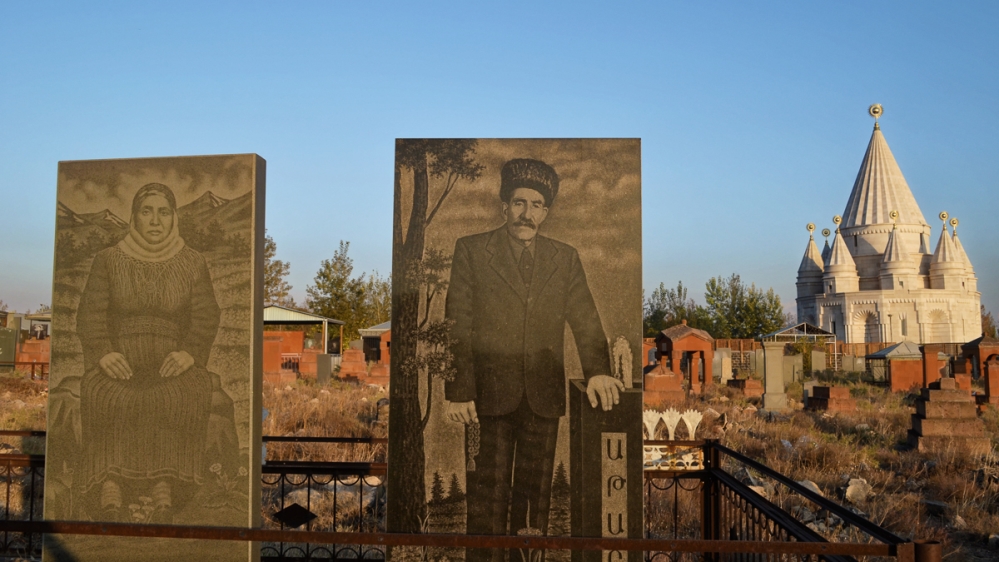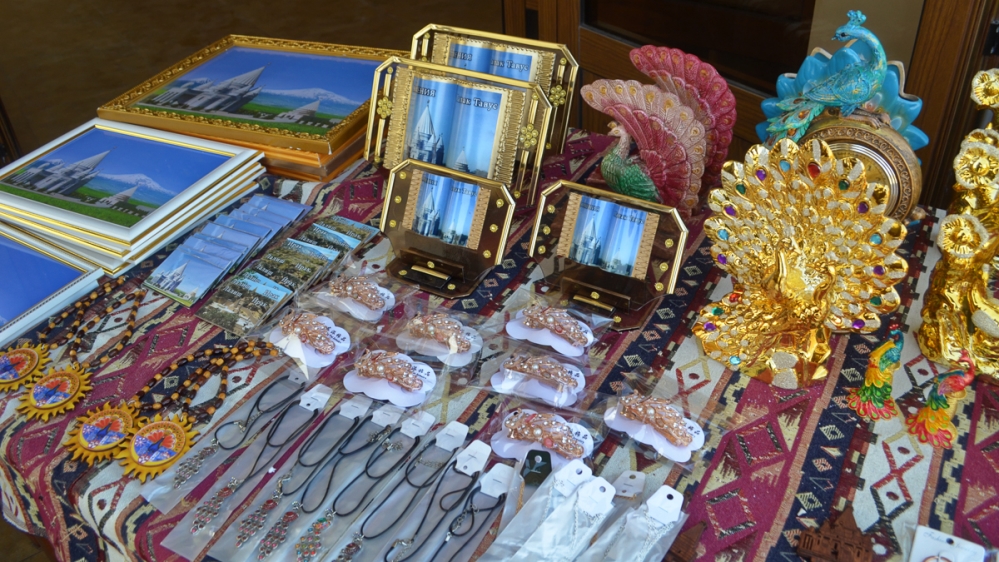Re: Yazidi UPDATES genocide has occurred and is ongoing
How last year's Nobel winner endured
Win the Nobel Peace Prize at 25, become a commodity. How last year's winner endured
Last October, a professor at Harvard University asked Yazidi genocide survivor Nadia Murad if she was excited for the next day’s Nobel announcement. Nadia had been nominated, but we did not expect her to win. She turned to me with tears in her eyes and said, “But I don’t want it.” After traveling for more than three years to advocate for the Yazidis, she was exhausted. She knew a Nobel would keep her on the road.
The next morning, Nadia woke to discover she had been awarded the Nobel Peace Prize. Over supper she asked if she could give the award back. “No,” I said, “but we’ll help you get through it.” I was referring to our five-person team that had helped her found the nonprofit Nadia’s Initiative to advocate for the Yazidis of northern Iraq.
It seemed to me that Nadia, then only 25, felt the prize was less of a cause for celebration and more of a memorial to what she had lost — in 2014 she was among 6,700 women and girls taken into slavery by Islamic State. The terrorist group murdered her mother, six brothers, many cousins and so many others in her community. The prize was a powerful reminder of how long she had waited for the international community to take action.
In a quest I had started calling the “lost cause,” Nadia’s Initiative had approached governments, queens, billionaires and nongovernmental organizations to help the Yazidis. But the facts we laid out about the genocide — including 12,000 killed, 450,000 displaced, and 90% of homes and schools destroyed — had failed to persuade the international community to provide security and material support, and refer the case to the International Criminal Court that is designed to protect persecuted people such as the Yazidis.
But the Nobel gave us new hope for helping the Yazidis. Nadia represented a particular currency: Individuals, institutions and governments would support the cause so that they could associate with her in what I call the “virtue exchange.” It was my job to persuade the social, business and political elite that supporting Nadia and Yazidis would allow them to project virtue to the world.
At the banquet following the 2018 Nobel Prize ceremony, Asle Toje, a foreign policy scholar and the youngest member of the five-person Nobel committee, turned to me, smiling slyly, and said, “What’s next, a presidential campaign for you?” I knew he was playfully making fun of me for being a salesperson who had helped construct a campaign to promote Nadia and the Yazidi cause.
Our small team had worked to raise Nadia’s value on the virtue exchange by casting her as the face of the genocide. When Nadia won the Nobel Prize, she became a brand and a celebrity. Countries, billionaires and NGOs paid Nadia’s Initiative high fees for Nadia to speak. On a number of occasions, Nadia asked me why people wouldn’t just help the Yazidis without her having to retell her terrifying and heartbreaking story, forcing her to relive her trauma in exchange for support. The responsibility was a strain.
A director of the Malala Fund — Malala Yousafzai won the Nobel Peace Prize in 2014 — warned me that Nadia had a year to collect money and persuade people to take action before her value on the exchange plummeted.
And that is what we did: We traveled through North America, Europe and the Middle East to collect contributions and commitments to take action on behalf of the Yazidis.
Did our actions help? Through our advocacy and fundraising, we obtained commitments of millions of dollars for farmers, the construction of a new school, a new hospital and other programs, but reconstruction is nearly impossible when the region is not yet secure. What little money that has reached the Yazidis in Sinjar, Iraq, and other communities provides temporary relief and is completely inadequate to rebuild an infrastructure that has been reduced to rubble by the conflict with Islamic State.
As Iraq, Kurdistan, and Iranian proxies wrangle over control of the region, the Yazidis will continue to suffer. If the U.S. withdraws forces from the region, what little progress the Yazidis have made will be endangered.
In a world in which celebrity causes continue to be one of the few ways to help people in desperate need, the Nobel Peace Prize empowers leaders of humanitarian causes who represent people such as the survivors of the Yazidi genocide, many of whom lost all but their lives. All of whom wait for what may never be restored. Friday’s announcement of the 2019 Nobel Peace Prize winner may put another worthy cause in the spotlight, but so much more than a spotlight is needed.
Over the last four years, a number of people we approached to support our cause privately asked me why the Yazidis mattered. After all, there were so few of them, less than a million worldwide, and most are in northern Iraq. The answer is simple: If the Yazidis don’t matter, no one matters. If one refugee made stateless by tyranny is rendered “superfluous,” in the words of German-Jewish political theorist Hannah Arendt, then we are all superfluous.
Elizabeth Schaeffer Brown is a co-founder of Nadia’s Initiative and Uncommon Union, a public affairs and advisory firm
https://www.latimes.com/opinion/story/2 ... adia-murad
Win the Nobel Peace Prize at 25, become a commodity. How last year's winner endured
Last October, a professor at Harvard University asked Yazidi genocide survivor Nadia Murad if she was excited for the next day’s Nobel announcement. Nadia had been nominated, but we did not expect her to win. She turned to me with tears in her eyes and said, “But I don’t want it.” After traveling for more than three years to advocate for the Yazidis, she was exhausted. She knew a Nobel would keep her on the road.
The next morning, Nadia woke to discover she had been awarded the Nobel Peace Prize. Over supper she asked if she could give the award back. “No,” I said, “but we’ll help you get through it.” I was referring to our five-person team that had helped her found the nonprofit Nadia’s Initiative to advocate for the Yazidis of northern Iraq.
It seemed to me that Nadia, then only 25, felt the prize was less of a cause for celebration and more of a memorial to what she had lost — in 2014 she was among 6,700 women and girls taken into slavery by Islamic State. The terrorist group murdered her mother, six brothers, many cousins and so many others in her community. The prize was a powerful reminder of how long she had waited for the international community to take action.
In a quest I had started calling the “lost cause,” Nadia’s Initiative had approached governments, queens, billionaires and nongovernmental organizations to help the Yazidis. But the facts we laid out about the genocide — including 12,000 killed, 450,000 displaced, and 90% of homes and schools destroyed — had failed to persuade the international community to provide security and material support, and refer the case to the International Criminal Court that is designed to protect persecuted people such as the Yazidis.
But the Nobel gave us new hope for helping the Yazidis. Nadia represented a particular currency: Individuals, institutions and governments would support the cause so that they could associate with her in what I call the “virtue exchange.” It was my job to persuade the social, business and political elite that supporting Nadia and Yazidis would allow them to project virtue to the world.
At the banquet following the 2018 Nobel Prize ceremony, Asle Toje, a foreign policy scholar and the youngest member of the five-person Nobel committee, turned to me, smiling slyly, and said, “What’s next, a presidential campaign for you?” I knew he was playfully making fun of me for being a salesperson who had helped construct a campaign to promote Nadia and the Yazidi cause.
Our small team had worked to raise Nadia’s value on the virtue exchange by casting her as the face of the genocide. When Nadia won the Nobel Prize, she became a brand and a celebrity. Countries, billionaires and NGOs paid Nadia’s Initiative high fees for Nadia to speak. On a number of occasions, Nadia asked me why people wouldn’t just help the Yazidis without her having to retell her terrifying and heartbreaking story, forcing her to relive her trauma in exchange for support. The responsibility was a strain.
A director of the Malala Fund — Malala Yousafzai won the Nobel Peace Prize in 2014 — warned me that Nadia had a year to collect money and persuade people to take action before her value on the exchange plummeted.
And that is what we did: We traveled through North America, Europe and the Middle East to collect contributions and commitments to take action on behalf of the Yazidis.
Did our actions help? Through our advocacy and fundraising, we obtained commitments of millions of dollars for farmers, the construction of a new school, a new hospital and other programs, but reconstruction is nearly impossible when the region is not yet secure. What little money that has reached the Yazidis in Sinjar, Iraq, and other communities provides temporary relief and is completely inadequate to rebuild an infrastructure that has been reduced to rubble by the conflict with Islamic State.
As Iraq, Kurdistan, and Iranian proxies wrangle over control of the region, the Yazidis will continue to suffer. If the U.S. withdraws forces from the region, what little progress the Yazidis have made will be endangered.
In a world in which celebrity causes continue to be one of the few ways to help people in desperate need, the Nobel Peace Prize empowers leaders of humanitarian causes who represent people such as the survivors of the Yazidi genocide, many of whom lost all but their lives. All of whom wait for what may never be restored. Friday’s announcement of the 2019 Nobel Peace Prize winner may put another worthy cause in the spotlight, but so much more than a spotlight is needed.
Over the last four years, a number of people we approached to support our cause privately asked me why the Yazidis mattered. After all, there were so few of them, less than a million worldwide, and most are in northern Iraq. The answer is simple: If the Yazidis don’t matter, no one matters. If one refugee made stateless by tyranny is rendered “superfluous,” in the words of German-Jewish political theorist Hannah Arendt, then we are all superfluous.
Elizabeth Schaeffer Brown is a co-founder of Nadia’s Initiative and Uncommon Union, a public affairs and advisory firm
https://www.latimes.com/opinion/story/2 ... adia-murad









